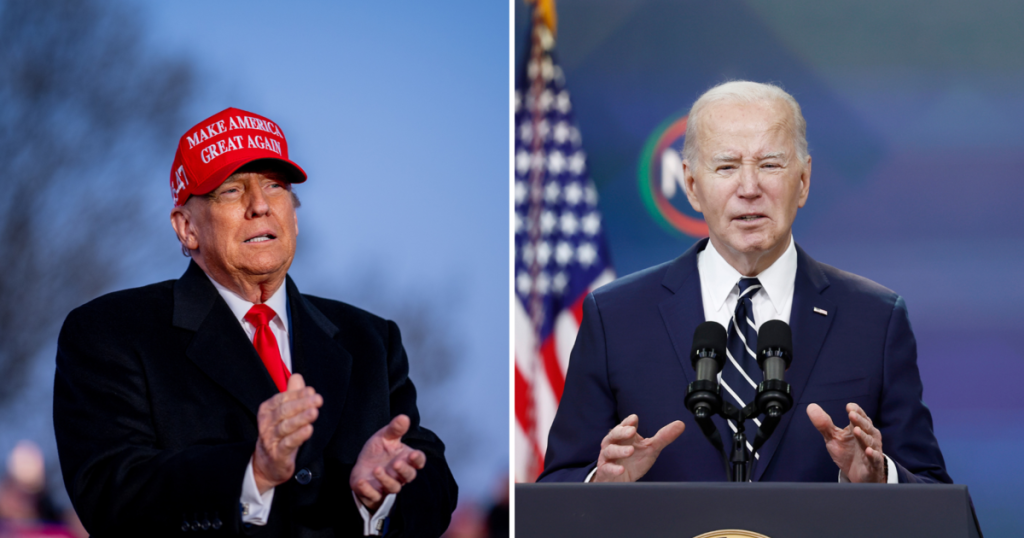The key battleground states of Michigan, Wisconsin, and Pennsylvania played a crucial role in the 2020 presidential election, ultimately determining the outcome in favor of challenger Joe Biden. As the 2024 election approaches, the race remains close between incumbent President Biden and former President Donald Trump, with negative views of the economy weighing heavily on the current administration. A majority of voters in these states express concern and insecurity about both candidates, with feelings of worry and anger dominating the electorate.
Despite the passage of time since the onset of the COVID-19 pandemic, many voters in these states do not perceive improvements in the economy post-pandemic. A significant portion believes that their state’s economy has worsened since then, leading to a sense of financial insecurity compared to pre-pandemic times. These economic concerns are a critical factor in shaping voter perceptions and attitudes towards the candidates.
One key change working against President Biden is his narrowing edge over Donald Trump on understanding the needs and concerns of ordinary people. While Trump now holds a slight lead on this issue, negative emotions like worry and anger continue to define the electorate’s perception of both candidates. Biden’s perceived moderation has also decreased, potentially affecting his appeal to a broader voter base.
Economic issues remain at the forefront of voter considerations, with many expressing a desire to return to the pre-pandemic economic conditions under the Trump administration. Despite Biden’s advantage on helping the middle class, this advantage has diminished in Pennsylvania, where voters are divided on which candidate would better serve their economic interests. The stakes of the election are defined by competing narratives on democracy and economic concerns, with Trump’s focus on the economy resonating more strongly with some voters.
The contentious issue of abortion has become politically significant in these states, particularly among Democrats who express anger over potential setbacks in reproductive rights. The overturning of Roe v. Wade is a key concern for many voters, influencing their support for Biden. While economic concerns dominate the electorate’s priorities, issues like abortion serve as rallying points for certain voter demographics.
Trump’s ongoing legal trial in New York has not significantly impacted voter perceptions, with Democrats and Biden supporters paying closer attention to the proceedings. Both candidates face challenges in mobilizing their base, as “very strong” support has decreased from 2020 levels. The race is marked by a high level of dissatisfaction among voters, potentially leading to lower turnout rates or increased third-party voting.
Younger voters continue to play a crucial role in the election, with varying attitudes on issues like the Israel-Hamas conflict and student loan debt cancellation influencing their support for Biden. Third-party candidates pose a potential challenge in the election, with their appeal drawing interest from voters backing Trump. Overall, the economic outlook and voter emotions remain key factors shaping the electoral landscape in Michigan, Wisconsin, and Pennsylvania.


